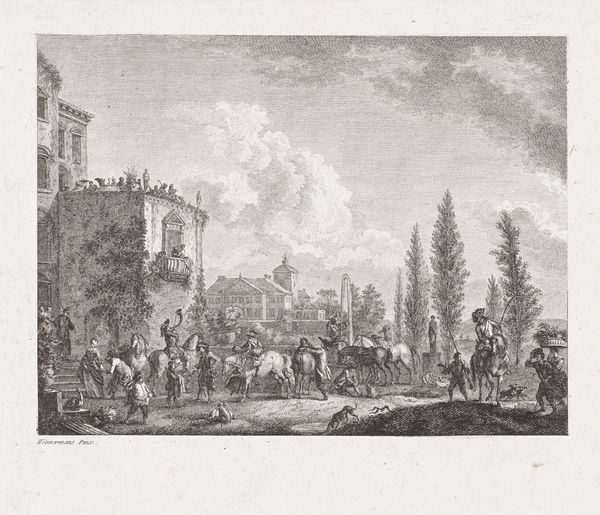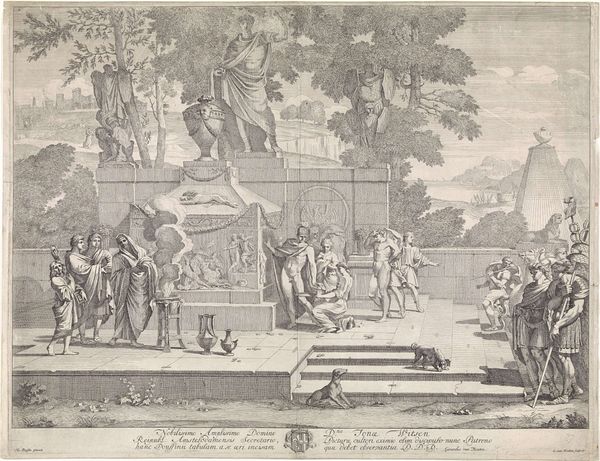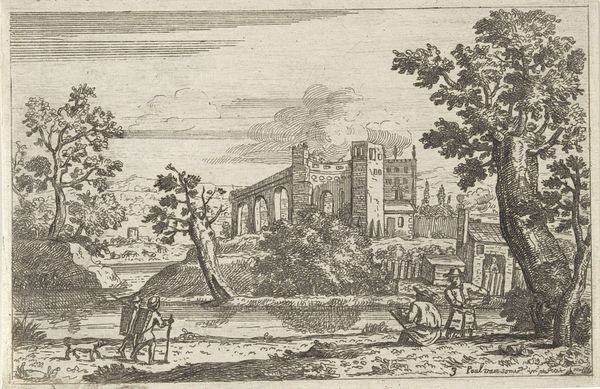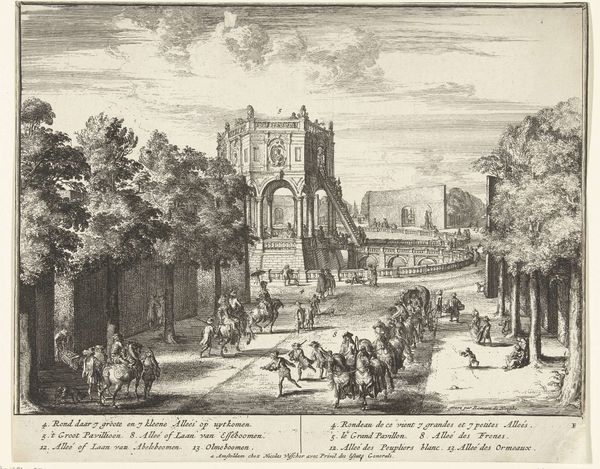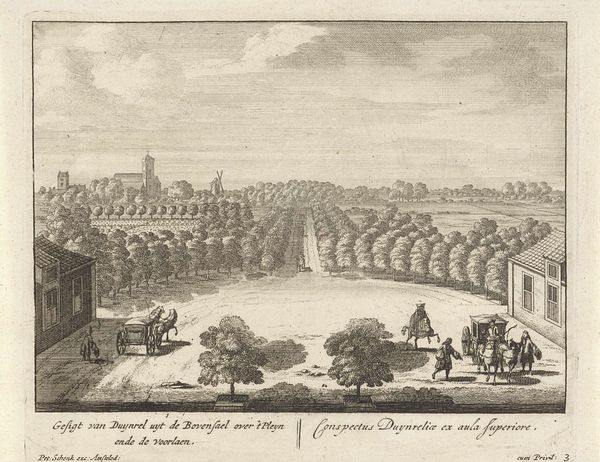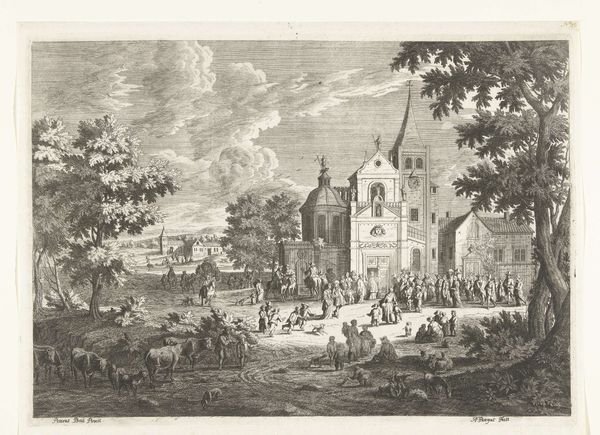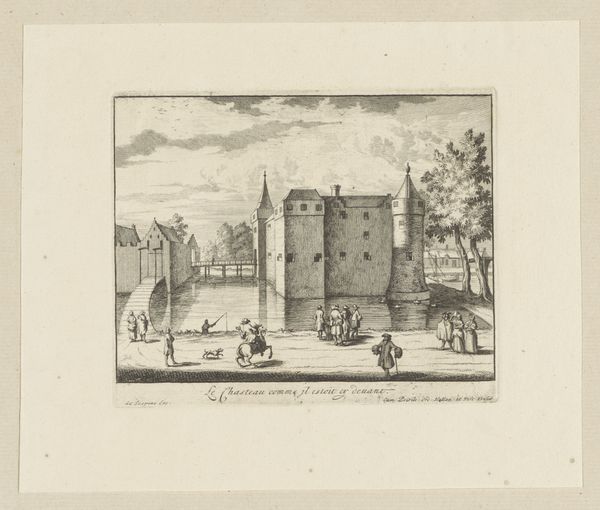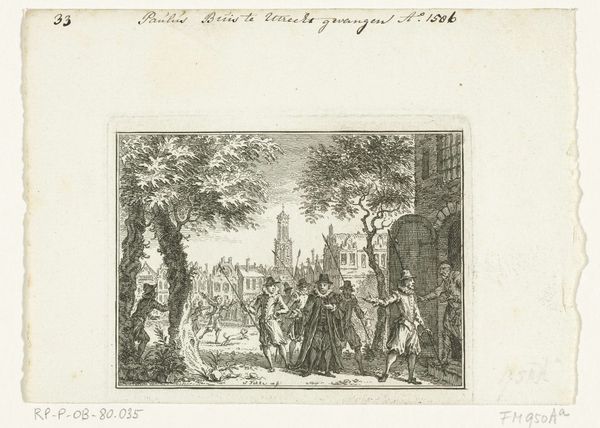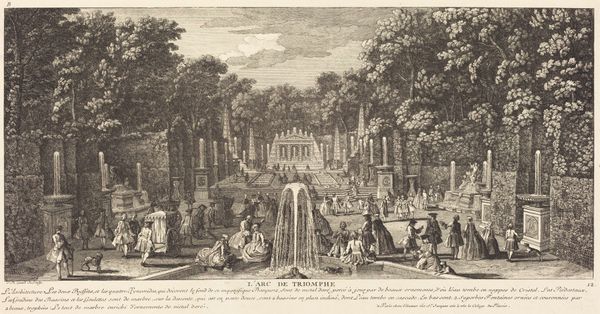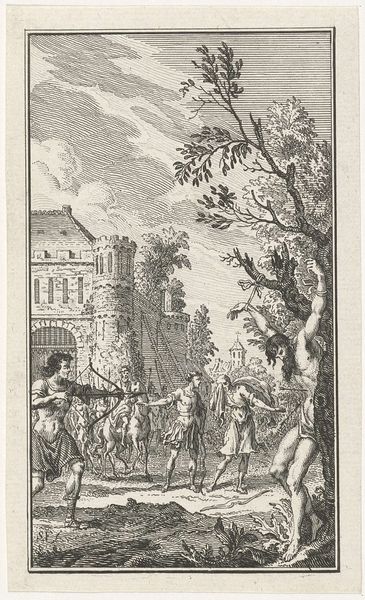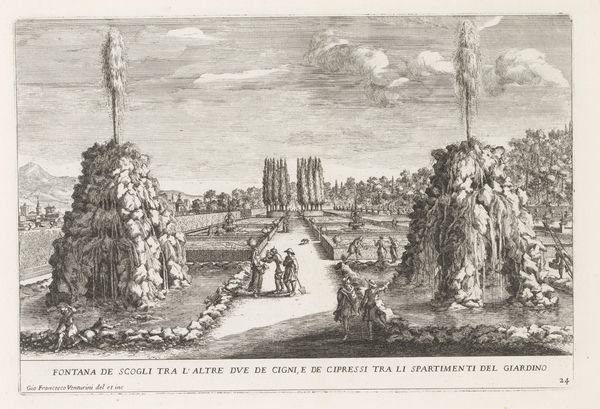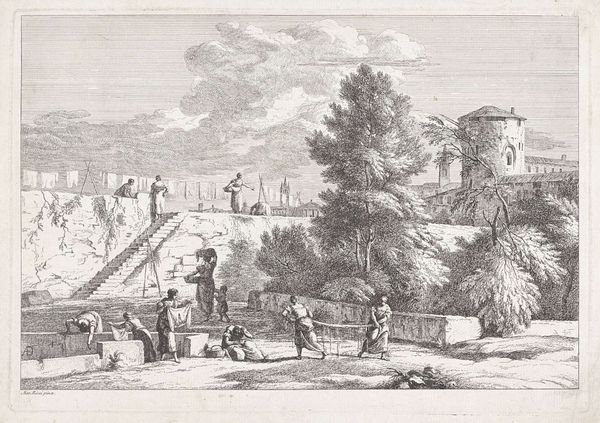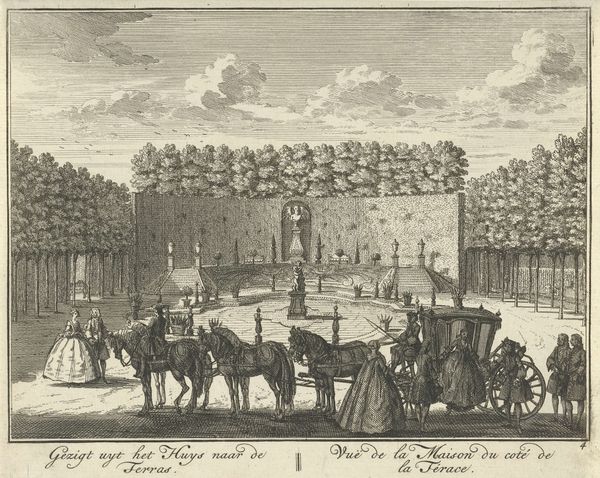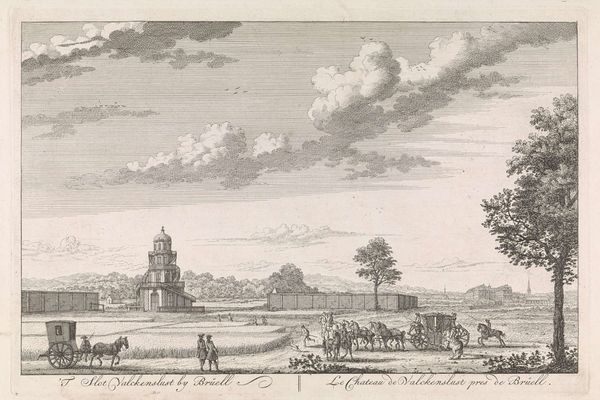
print, engraving
#
narrative-art
#
baroque
# print
#
pen illustration
#
old engraving style
#
traditional media
#
figuration
#
islamic-art
#
history-painting
#
engraving
Dimensions: height 176 mm, width 204 mm
Copyright: Rijks Museum: Open Domain
This etching by Jan Caspar Philips, made around the 18th century, captures scenes of Persian punishments, a landscape filled with symbols of power and suffering. The pole with a body evokes ancient forms of sacrifice and domination, reminiscent of Roman crucifixions or even the totemic poles of indigenous cultures. Consider the act of impalement, a brutal display found across many cultures, including ancient Assyria. It embodies a primal fear: the violation of the body, the ultimate symbol of the self. The image becomes a vessel for collective nightmares of torture. Looking at the motif of the severed head being buried, we find echoes in medieval legends of saints and martyrs, yet here it is devoid of religious sanctity, reduced to a stark demonstration of earthly power. How do these violent symbols trigger our subconscious? This image taps into the deep reservoir of human experience, where fear and power intertwine. This visual language transcends time. These symbols resurface, evolve, and take on new meanings, constantly engaging viewers on a deep, subconscious level.
Comments
No comments
Be the first to comment and join the conversation on the ultimate creative platform.
